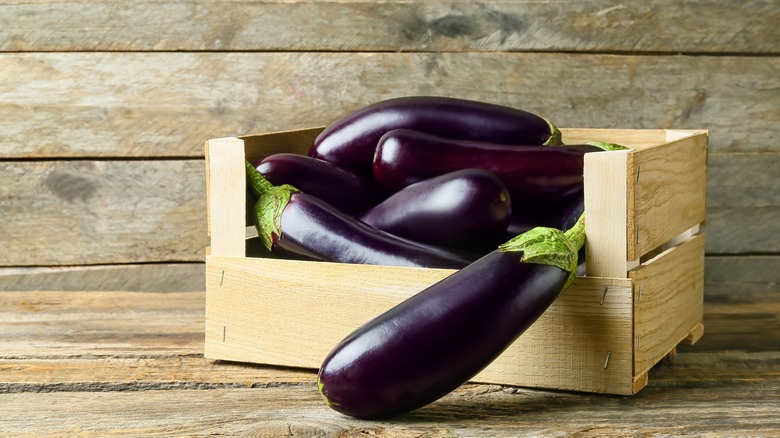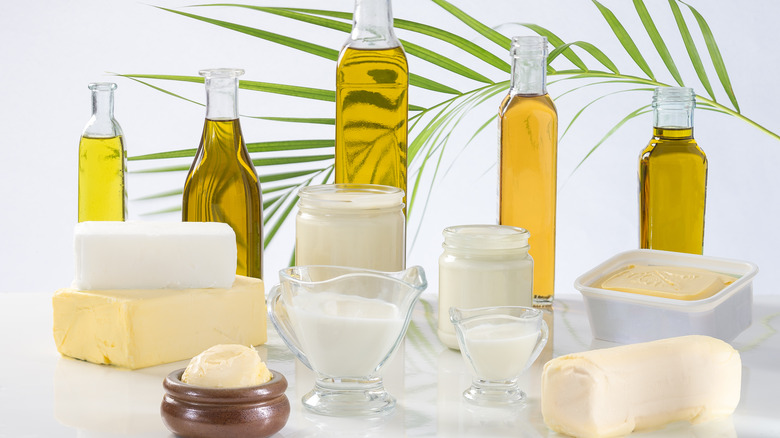Your Eggplant Will Taste Better If You Use More Of This Ingredient
Dice it into a caponata or slice for a parmigiana, there's no shortage of ways to transform eggplant into an insanely delicious dish. While the fruit — yes, you read that correctly — is a great vessel for any spices and seasonings, there is one ingredient that you should definitely be using more of in order to make your eggplant taste better. Got any guesses?
Indigenous to parts of India, Africa, and South Asia, Purdue University explains that the solanum melongena continues to thrive. Tender in texture, eggplants have a delicate sweetness that's similar to summer squash. However, they can also have a subtle vegetal bitterness. Part of the nightshade family, America's Test Kitchen reports that eggplants' bitterness can also be due to the presence of alkaloids like solanine, which can cause be poisonous if eaten in outrageous amounts. But, due to selective breeding, it's likely that even mature aubergines would only leave you with a tingling sensation.
With hundreds of varieties, eggplants can range from large to small, pearly white to dark purple, and spherical to long and lean. Regardless of which type catches your eye, shiny skin that's blemish and bruise-free is always a great indicator of quality, notes Epicurious. Of course, choosing aubergines that are firm and have a vibrant green leaf cap also are a safe bet. Once you've picked out the best of the best, it's time to get cooking.
More fat means more flavor
Eggplant is known for its springy, sponge-like absorption. Add a glug of olive oil and it disappears into the eggplant in a matter of seconds, which can cause us to cut back on the amount of fats we use when cooking aubergines. Unfortunately, this is a huge mistake — fat always adds flavor! It can elevate a dish's richness, as well as maintain moisture, create texture and make foods more delectable, explains Food Business News.
Whether it's oil, butter, or lard, Bon Appétit recommends exercising some caution and slowly adding fat when sautéeing. This will allow for more even absorption without creating an oily mess. The reason for the almost magical level of liquid retention, according to Cook's Illustrated, is that eggplants have a bunch of minuscule pockets filled with air and water that are stellar at absorbing liquid. That's why pre-salting eggplant can help draw out moisture (and collapse some of those air pockets), before it hits the frying pan. You can even toss salted eggplant slices into the microwave for even speedier results.
If you're still unsure about adding extra fat, it's not the only way to achieve mouth-watering dishes. Instead, you might want to consider some alternative cooking solutions like charring or roasting your eggplant, which will still give you all those rich and creamy textures, just with fewer calories.

